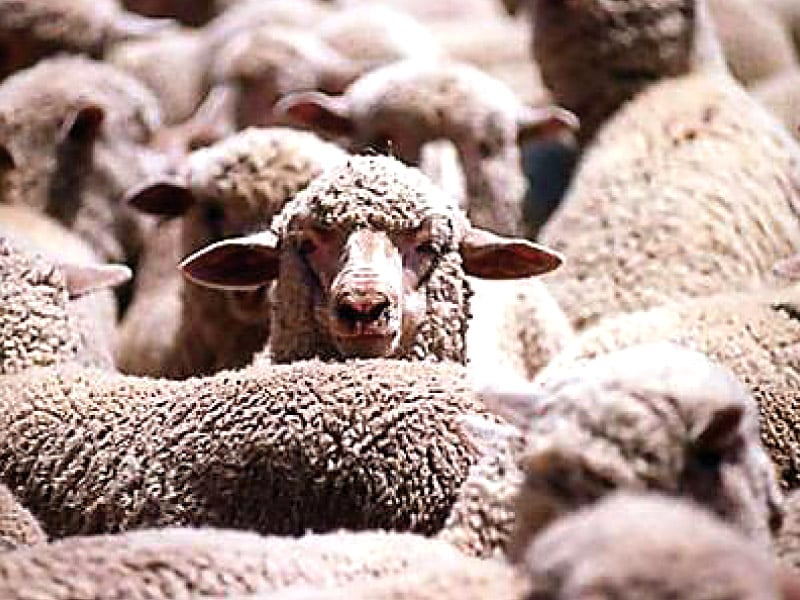
“This herd has been with our family for generations,” said Farooq, speaking about the 300 head of Baloch-breed sheep in his family’s herd. “We Balochis grow up watching our fathers and mothers care for our sheep. In return, we get milk, wool, meat, and a lot of warmth from our herds.”
Farooq wants to pass this family tradition on to his children, which is why he travelled to Australia in January for a three-week study tour sponsored by the US Agency for International Development (USAID) to learn modern farming practices, increase his income, and ensure that he can pass the family livestock business on to the next generation.
More than 40% of Balochistan’s economy relies on sheep and wool. But despite its vast importance to the province’s economy, the sheep-growing sector is still mainly using traditional, centuries-old techniques. There is significant demand in other provinces of Pakistan for the wool from Balochistan to use in carpets and blankets, and Baloch farmers are eager to tap into that huge market. The USAID-funded Balochistan Agriculture Project helps these farmers along the border with Afghanistan to increase their incomes by modernising their farming activities.
During their visit, Farooq and other Baloch sheep farmers were introduced to Australian sheep farmers, who are leaders in the global sheep and wool marketplace. They had opportunities to learn about international industry best practices and experiment with modern equipment.
Farooq was fascinated by the activities which Australians apply to the wool to add value after the sheep are sheared, such as washing, sorting, and bailing. In Balochistan, this value-adding work is outsourced to other provinces; but Farooq thinks that by undertaking these simple processes in their homes instead of having them done elsewhere, the families of Baloch shepherds can increase their household incomes.
“We have to adopt this system in Balochistan,” Farooq declared. Farooq also plans to implement this, and other lessons – such as battery-operated shearing, baling, and primary grading based on colour – at his farm.
The programme has already helped introduce many innovations to several other farms. Once these advances are combined with direct marketing training, these improvements have resulted in approximately an 80% increase in income for the farmers adopting these advanced business practices.
Published in The Express Tribune, March 2nd, 2013.
Like Business on Facebook to stay informed and join in the conversation.
COMMENTS (1)
Comments are moderated and generally will be posted if they are on-topic and not abusive.
For more information, please see our Comments FAQ





1719053250-0/BeFunky-collage-(5)1719053250-0-270x192.webp)











Good initiative by Balochi Sheep herdsmen. If they are properly introduced to farming techniques and do what they really like to do, i.e. sheep herding, then it will not only benefit their family but whole of Balochistan will benefit, with their rising incomes. Maybe that way that may have less grievances toward other provinces. Its all about self-help, and people of other provinces adopted new farming techniques, using Tractors and machinery, fertilizers, medicating their cattle, etc. decades ago, and that is the prime reason why other provinces are doing a bit better, even without much help from the government. It upto Balochis to change their life situation and circumstances, rather than putting blame on other provinces all the time, some of that blame might be true (may 10%), but not all of it (90%).